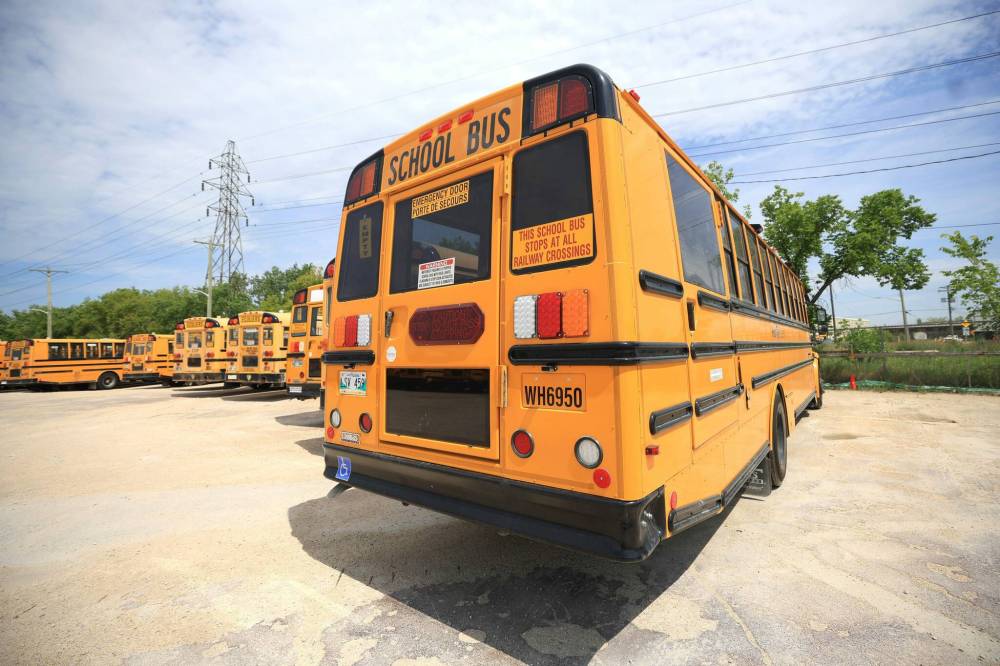Education
Schools Face Outdated Curriculum as New Year Begins in Manitoba

As students in Manitoba return to school this fall, many are finding themselves confronted with an outdated curriculum that raises concerns about their educational experience. While fresh starts often accompany the new school year, the lessons being delivered in classrooms remain alarmingly stagnant.
Stagnation in Curriculum Development
In a recent review of the Manitoba Education and Early Childhood Learning curriculum, notable discrepancies emerge. The most current history course, titled “Cinema as a Witness to Modern History,” was introduced in 2015. Other senior year courses, particularly those for Grades 9 and 10, have not seen updates since 2007, and some, such as “Western Civilization: Historical Review of its Development,” date back to 1995. With the year now 2025, these timelines prompt serious questions regarding the relevance and applicability of the material being taught.
As a parent and educator, the author, Peter Denton, reflects on his own experiences and those of his children, who have encountered the same novels in their Grade 11 English class that he did decades ago. Despite advances in Canadian literature, the curriculum seems to overlook contemporary works that could enrich students’ understanding of their own cultural landscape.
Impacts on Future Generations
The implications of this outdated approach are significant. High school students are preparing to graduate into a world where understanding historical context and sustainability is crucial. Yet, they are being taught from materials that fail to address modern complexities, including pressing issues like climate change and social justice. This gap in education can lead to a generation ill-equipped to navigate the challenges of the future.
Education advocates have voiced concerns that teachers, while often dedicated and skilled, may struggle to compensate for the shortcomings of a stagnant curriculum. Gerald Farthing, a former deputy minister of education, championed the introduction of the “Global Issues: Citizenship and Sustainability” course in 2017, aiming to provide students with relevant, real-world knowledge. Despite his efforts, the lack of ongoing updates and support since 2016 raises doubts about the sustainability of such initiatives.
As the new school year begins, it is crucial for both educators and policymakers to engage in a dialogue about curriculum reform. Students deserve an educational experience that reflects the realities of their lives and prepares them for the future. With significant financial investment in education, stakeholders must demand better outcomes and a curriculum that evolves with the times.
In conclusion, as students return to their classrooms, the challenge remains: how can Manitoba’s education system adapt to ensure that the lessons taught today are relevant for the leaders of tomorrow?
-

 World3 months ago
World3 months agoScientists Unearth Ancient Antarctic Ice to Unlock Climate Secrets
-

 Entertainment4 months ago
Entertainment4 months agoTrump and McCormick to Announce $70 Billion Energy Investments
-

 Lifestyle3 months ago
Lifestyle3 months agoTransLink Launches Food Truck Program to Boost Revenue in Vancouver
-

 Science4 months ago
Science4 months agoFour Astronauts Return to Earth After International Space Station Mission
-

 Technology2 months ago
Technology2 months agoApple Notes Enhances Functionality with Markdown Support in macOS 26
-

 Top Stories2 weeks ago
Top Stories2 weeks agoUrgent Update: Fatal Crash on Highway 99 Claims Life of Pitt Meadows Man
-

 Sports4 months ago
Sports4 months agoSearch Underway for Missing Hunter Amid Hokkaido Bear Emergency
-

 Politics3 months ago
Politics3 months agoUkrainian Tennis Star Elina Svitolina Faces Death Threats Online
-

 Technology4 months ago
Technology4 months agoFrosthaven Launches Early Access on July 31, 2025
-

 Politics3 months ago
Politics3 months agoCarney Engages First Nations Leaders at Development Law Summit
-

 Entertainment3 months ago
Entertainment3 months agoCalgary Theatre Troupe Revives Magic at Winnipeg Fringe Festival
-

 Politics3 weeks ago
Politics3 weeks agoShutdown Reflects Democratic Struggles Amid Economic Concerns





















